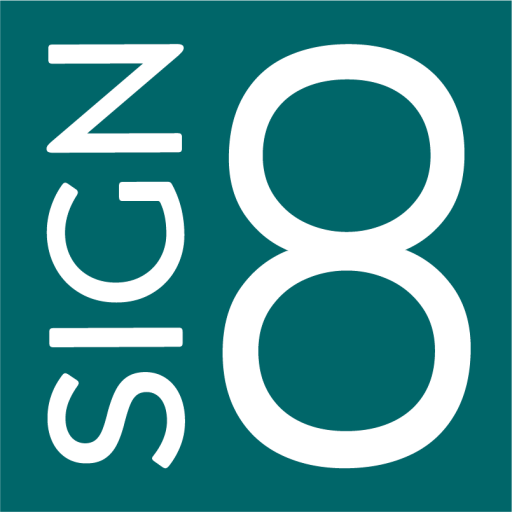Made with ❤️ in Munich

Digital Signatures & Seals
Sign
legally valid
Whether contracts, applications or internal approvals – with SIGN8, you can sign digitally and in compliance with legal requirements. Our solutions are as flexible as your requirements: operated in the cloud or locally at your premises.










You have four options for
signing or sealing digitally
SIGN8 signing portal
Want to sign independently and flexibly?
The web app works on any browser-enabled device. Simply log in and get started.
SIGN8 signing APIs
Want to seamlessly integrate signature processes into your systems?
The APIs – CSC and Workflow – make it possible: fully automated, seamlessly integrated.
SIGN8 signing token
Would you like to sign PDF documents locally and offline yourself?
With the USB token, you can sign directly in Adobe, for example – without an internet connection.
SIGN8 TCI
Do you have high signature volumes or high security requirements?
Our TCI lets you manage certificates on your own servers and supports high signature volumes.
Save up to 90% time spend signing documents
When you sign qualified for the first time, you need to verify your identity.
These options are available to you:

Your benefits
with us
Speed boat instead of steamship
Small enough to stay agile. Big enough to deliver.
Got new requirements? We’ll handle it.
Real People. Not Anonymous Systems.
No bots call you back here. We talk to you as equals and truly listen – even beyond business topics.
100% Self-Made
Our technology is completely built in-house. No patchwork. No third-party dependencies. Just complete control and total flexibility.
Buddy Vibes
We know each other, value each other, and sometimes just pick up the phone for a quick chat.
